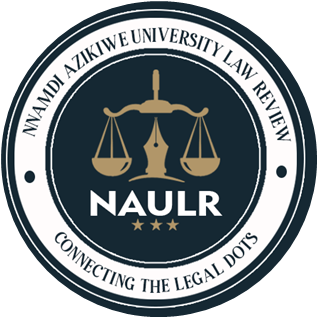BY
BRIGHT ESEOSA ENORENSEEGHE AND OSAZEE DAVID EGBENUSI
Abstract
Equality is foundational to the idea of justice. Thus, equality clauses are found at all levels of law, ranging from the Universal Declaration of Human Rights, numerous provisions in the human rights treaties of the United Nations and of regional system, to national, subnational, or local and communal constitutions, equality law does not always amount to a coherent body of norms, but as an instance of legal pluralism, equality law is more or less consistent, sometimes inherently ambivalent and even at times contradictory. Thus, equality may be simultaneously guaranteed and limited in constitutional and human rights law; the supreme law of the land may thus promise equality but also entrench inequality and institutionalize discrimination. Section 42 CFRN 1999 would seem to have dealt with the different forms of discrimination in Nigeria, however, immediately after the provision of this right, a proviso was created in same section [an exception]; permitting discriminatory practices in some cases. Hence, this paper critically examines the nature and scope of equality and discrimination, generally. Afterwards, this paper offered a quick review of Nigeria’s constitutional position on the subject area (section 42 CFRN 1999).
